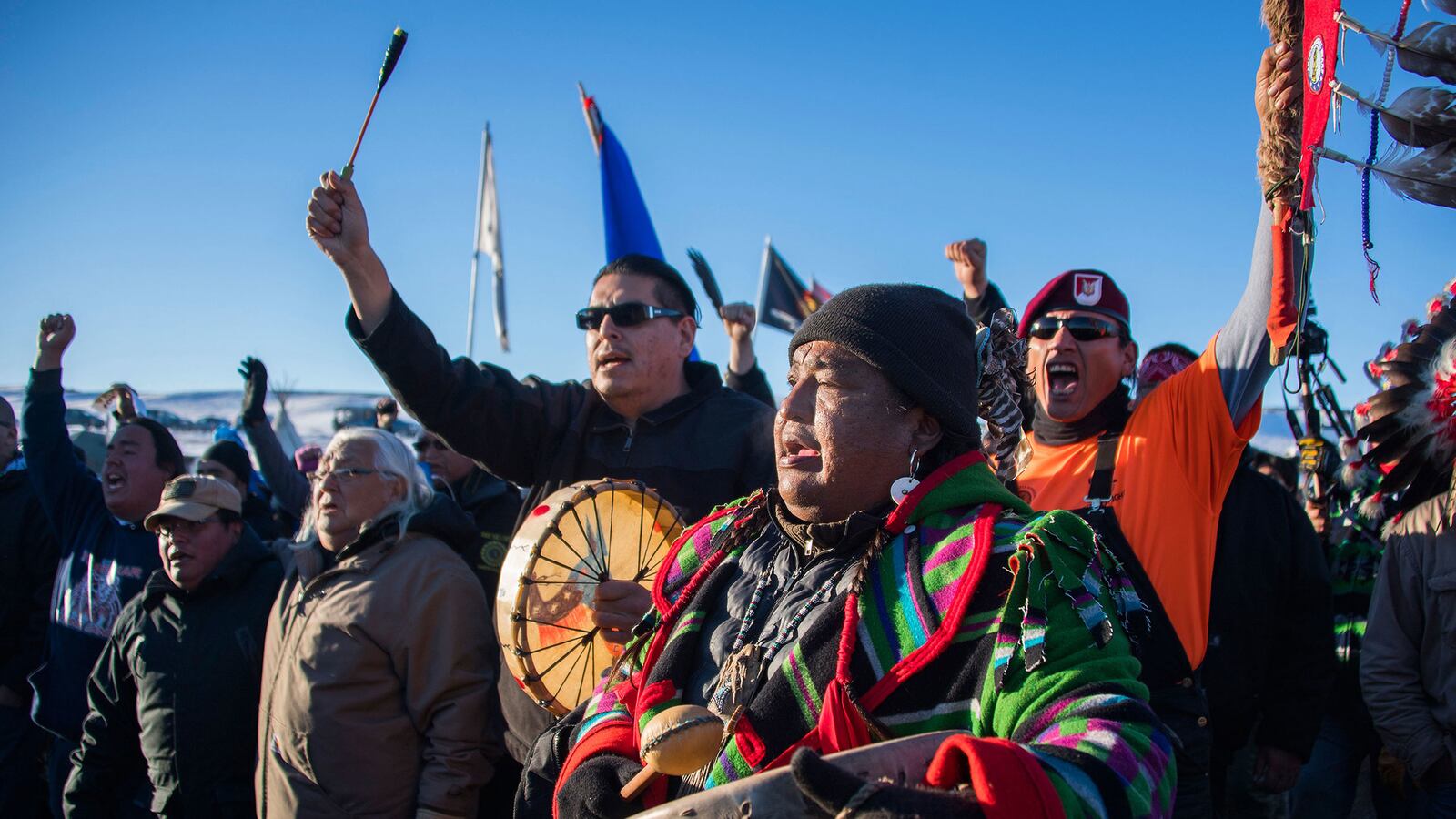CANNON BALL, North Dakota — As thousands of U.S. military veterans descended upon Standing Rock on Saturday, the U.S. Army Corps of Engineers announced it would halt work on the controversial Dakota Access Pipeline that runs along the tribe’s reservation to conduct an environmental-impact study.
The veterans plan to envelop the “water protectors” protesting the pipeline in any confrontation that may arise between them and law enforcement over the next three days.
The announcement was celebrated in the main camp, which is sprawled out in a valley near Cannon Ball, North Dakota. Fireworks could be seen shooting off above the tents and teepees as drum circles beat away, even as the water protectors vowed to continue the fight.
In late July, the Army Corps granted Energy Transfer Partners permission to cross Lake Oahe as part of an 1,100-mile pipeline that will run from North Dakota to Illinois. That path takes it less than a half-mile from the Standing Rock Reservation’s border, prompting tribal leaders to object on the grounds that it could damage sacred burial grounds and contaminate their drinking water. What started then as a small protest has since sprouted into a national movement.
As the sun was setting behind the rolling hills, a long, winding line of vehicles filled with water protectors waited on Highway 1806 for upwards of an hour to enter the camp. Many cheered, honked their horns, and raised their fists in solidarity as they slowly inched forward. Estimates as to how many veterans have arrived ranged from a few thousand to as many as 10,000.
One of the main veterans’ tents, made of canvas and plywood, rests near the main route through the camp. About 20 people smoked cigarettes, drank hot beverages, and chatted inside as many more filed in and out. Shelves of canned food could be seen lining the tent, along with camping chairs, American flags, and a wood-burning stove. Small groups discussed where they were from, why they came, and what to expect.
Rob McHaney, who served for 30 years in the U.S. Navy, said he does not know what will happen in light of the federal decree, but that he never trusts the government. “As a veteran, I took an oath to help those who can’t help themselves. And nowhere in that oath says I should go help an oil company.”
“I’m willing to take a bullet, he said. “I’m willing to go to jail. I’m willing to make North Dakota pay a lot of money to make me stay in jail for a long time.”
Cassandra Miller, a Navy veteran from Missouri, said she came to Standing Rock after seeing water protectors hit with pepper spray, water cannons, and sound cannons. “The military taught me how to stand in there and take that, and nobody taught these people how to take that. Regular people don’t know how to handle that, and their cause is just, and someone that does know how to handle that needs to protect them.”
Mike Miller, a Cherokee and Army veteran from Kansas City, said he believes the permit being denied for now, pending the environmental review, is a trick and that once the veterans leave the construction will start again. “When I see corporate interests being represented over brown and black people, like I did in Iraq, by a militarized police state—that’s not what I sacrificed for and that’s why I’m here.”
A female veteran wearing fatigues then entered the tent, and asked everyone to stop smoking inside because the cook has asthma. “Appreciate it, everyone,” said the cook, who wore plastic gloves as he prepared the communal stew. They then announced a private meeting and asked all non-veterans to exit the tent.
Water protectors plan to continue “the frontline action” at 8 a.m. Monday. It remains to be seen if law enforcement will attempt to evict the water protectors and how they will react to the influx so many veterans vowing to shield them.





